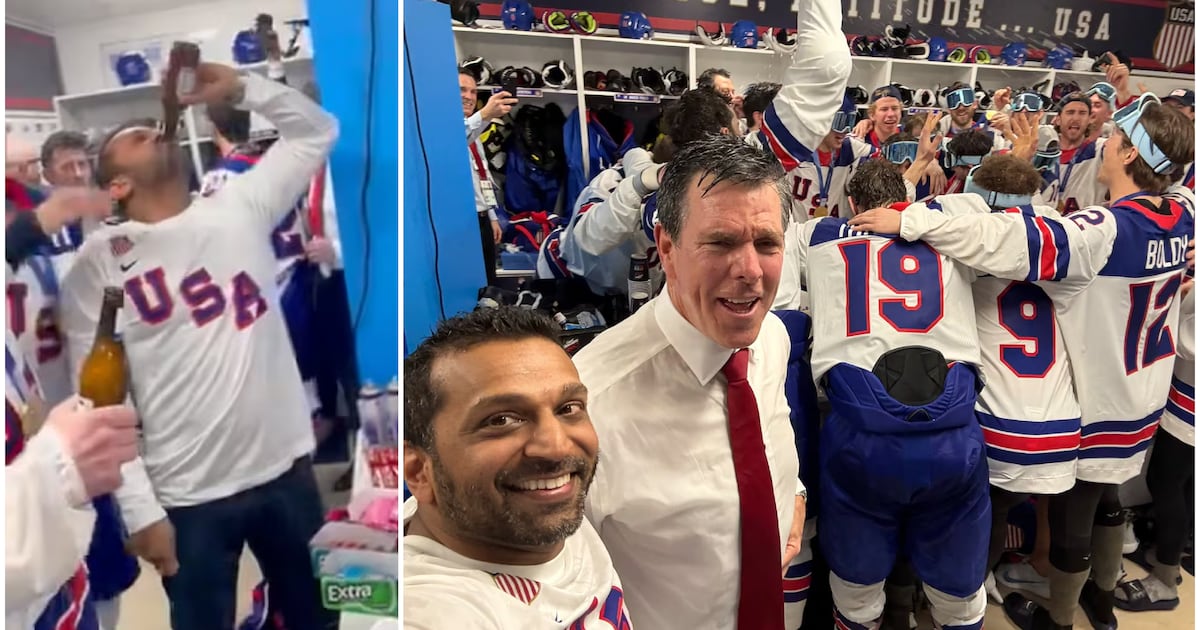If being a pig farmer was enough to make Joni Ernst a United States senator, if that one ad about castrating hogs was enough to make her one of 100 people with enormous influence over every aspect of U.S. policy making, then it ought to be enough to make Chris Peterson a genuine Man of the People and the face of the anti-anti-Obamacare movement erupting across the land.
It was Peterson, a pig farmer from the Hawkeye State, who told Republican Senator Charles Grassley the other night that he was on Obamacare and that he wouldn’t be able to afford insurance without it, and who said to the senator: “And with all due respect, sir, you’re the man that talked about the death panels. We’re going to create one great big death panel in this country [because of the fact] that people can’t afford to get insurance.”
You remember Grassley and his infamous tweets from 2009 about pulling the plug on grandma and all that. It was insanely demagogic. The actual proposal in question was some language in the House version of the Affordable Care Act that would have required Medicare to cover voluntary consultations between individuals and their doctors about end-of-life care. It was one of the worst examples (not the worst—there’s always Sarah Palin for that) of plainly false fear-mongering that helped make the law so unpopular.
Well, it’s not so unpopular now, and all this ought to be making Paul Ryan and Mitch McConnell very nervous indeed, because what we’re seeing here is almost without precedent in American history.
What’s important about this week’s protests is that these are middle Americans protesting for government. Stop and ask yourself when that has happened lately. We can probably count on one hand the number of times it has happened ever. Such uprisings are almost always anti-government, from Shay’s Rebellion in the 1780s right on up to the Tea Party. They’re almost never pro-government.
The other kinds of protests we’re accustomed to are those by particular groups making demands of the government—African Americans demanding the right to vote, women demanding equality. These two categories are each other’s opposite to the extent that the former want government to limit its reach and the latter want government to expand it.
But what’s going on at these town halls isn’t like either of those. This is people saying: government, you’ve actually done this good thing that helped me and my family; don’t take it away. If you’ve not read or seen the remarkable exchange between an Arkansas woman named Kati McFarland and GOP Senator Tom Cotton, you should check it out here. She’s the one who asked the audience how many were “affected by” the ACA and everyone stood up. Now, “affected by” could mean negatively, in theory; but the shout of “ACA! ACA!” that echoed through the auditorium showed pretty clearly that affected by meant “enjoying the benefits” of it.
She then went on to say that she was from a Republican, military, NRA family, but that she had a rare connective tissue disorder that made Obamacare a godsend to her: “Without the coverage for pre-existing conditions, I will die. That is not hyperbole. I will die. Without the protections against lifetime coverage caps, I will die. Without the Obamacare exchange health care plan that I have elected to continue after my Cobra that is going to kick in after I turn 26 this coming Sunday, I will die. Will you have a replacement plan in place to prevent coverage gaps the second the repeal goes through?”
If you want to convince yourself that George Soros paid her to be there, be my guest. I can promise you that whatever they might or might not say publicly, Ryan and McConnell know better, and they know very well why what we’re seeing that these town-hall meetings might be a crisis for them.
It’s a policy crisis because the Republicans have no policy—no intention to do the things that need to be done to help make things better. In poll after poll, people say, quite reasonably, that the main fixes they’d like to see to Obamacare are lower premiums and lower drug prices. Okay. How do you get these things? You start in on the former by ensuring that more healthy people sign up, which means having more states and governors trying to implement the thing in good faith. You start in on the latter by letting the government negotiate prices, which means taking on the pharmaceutical industry. The Republicans have no intention of doing either.
But more than that it’s a political crisis. Conservatives have known for a long time that once people receive a benefit, you face quite a challenge in taking it away from them. Bill Kristol said this to congressional Republicans back in 1994 in his famous memo explaining to them why they had to fight Hillarycare tooth and nail, and plenty of people on the right said it in 2009-10 as Obamacare was passing.
And they were right.
Even Republican, military, NRA families sometimes have rare connective tissue disorders. And they can see through the snowstorm of propaganda and recognize when the government actually got something right and helped them. They don’t want the “freedom” that Ryan promises. They’re already well aware that the rich and the poor are equally free to die prematurely from lack of health insurance, but that the rich for some reason rarely avail themselves of the opportunity to do so.
And finally, Ryan and McConnell are very aware of the implications of this uprising for Medicare and Social Security. Yes, Social Security—late last week the House GOP unveiled a new plan to “save” Social Security, and it’s about as grim as you’d expect.
They may not listen to Black Lives Matter protestors. But if they stop listening to pig farmers and NRA members, this accidental and nightmarish moment may implode sooner than we thought.






